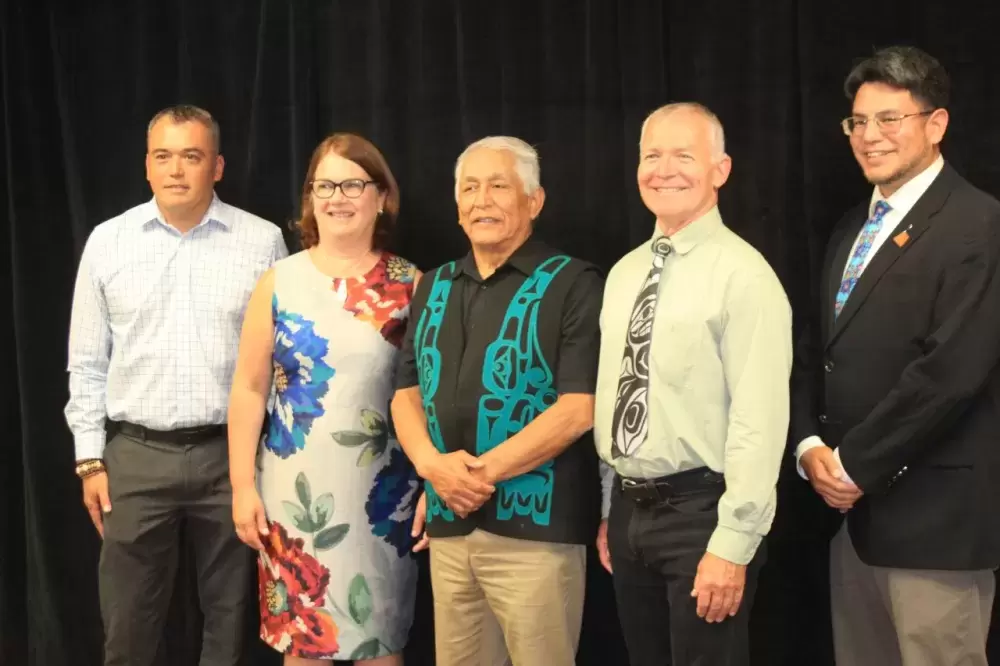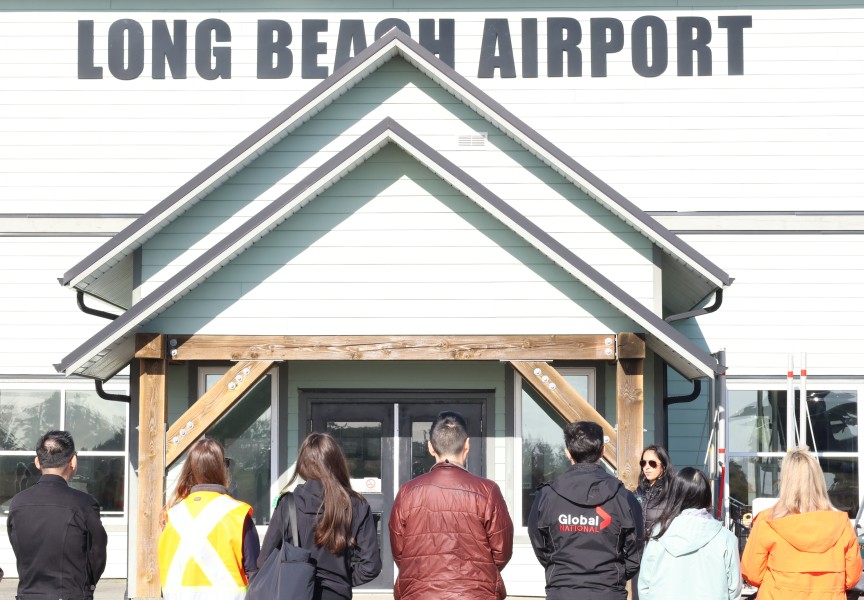The federal government is contributing $4.2 million over the next five years in support for a Huu-ay-aht First Nations initiative to prevent more of its children from being put into foster care.
Canada’s Indigenous Services Minister Jane Philpott made the announcement in Nanaimo today, which breaks down to $839,800 a year for the Huu-ay-aht’s Social Services project, adding to the $650,000 in annual funds the Vancouver Island First Nation has already committed to the community initiative, with $400,000 in help already committed from the provincial government.
Philpott said that the federal government took notice when the number of its children in care prompted the Huu-ay-aht to declare a public health emergency on March 8. At that time 47 of the First Nation’s youngsters were living under some sort of foster care, comprising 20 per cent of Huu-ay-aht children.
“What astonished me was how many of those children were in non-Huu-ay-aht homes,” said Chief Councillor Robert Dennis Sr. “A lot of our children who are taken away have their culture taken away.”
Among those children in care was a newborn removed from its mother by B.C.’s Ministry of Children and Family Development in January three days after birth. This news travelled across the country to make an impression on Philpott, she said. The Huu-ay-aht contested this removal in court, and by mid-March the baby was returned to the 19-year-old mother.
“I watched your announcement from afar - I was in Ottawa - and I was particularly struck by the story of the young baby who had been taken from its family,” said Philpott.
The federal funding helps the Huu-ay-aht to allocate a total of $1.8 million in annual resources for the Social Services Project, meeting the financial requirements needed to implement 30 recommendations produced by an independent panel in 2017. These recommendations stress the need for “circles of protection” around families to prevent their children from being placed in care.
Additional positions have already been filled by the First Nation to support families, but with the federal funding the Huu-ay-aht will be able to provide more assistance. These include a pregnancy support and baby welcoming program, a family support liaison worker, a protection support worker, parental education, anti-violence intervention, group conferencing for families in crisis as well as transitional living support for low-income families, said Philpott.
“We are coming to the table with the easiest part really, which is some finances,” she said. “The hard work is figuring out how you’re going to do this.”
The prevalence of Huu-ay-aht children in care is not a unique issue among First Nations, as half of Canada’s children in foster homes are Indigenous. Philpott has compared this widespread practice to the legacy of the Indian residential school system.
“Our desire as a federal government is to completely support the transformation of the way that child welfare is approached,” she said. “We are supporting working in partnership with Huu-ay-aht to be able to ensure that your children are at home, that they really are surrounded by the songs, the language, the traditions of your culture.”
During the funding announcement Huu-ay-aht member Edward Johnson spoke of the importance of transferring cultural lessons through generations. He said at one time there were 10,000 Huu-ay-aht on Vancouver Island, but this changed after European settlement.
“In the late 1800s when the residential schools first started, we were 300 Huu-ay-aht,” he said. “When we think of the turn of the century, we had a little over 100 Huu-ay-aht - you can just imagine what the other numbers are in some of the other nations.”
The First Nation has since grown to over 800 members, but preserving its ancestral language has become a growing concern. Councillor John Jack recalls a past message from fluent speaker Benson Nookemis.
“About 10 years ago he stood up and challenged the nation to have more fluent speakers, because at the time there were only 13 known to us,” said Jack. “We’re down to about six or seven now.”
Supporting language programs like the one currently being offered at North Island College will continue to be on the First Nation’s agenda as it looks for ways to better support future generations, said Jack.
“One of the ways that a community stays together is through the culture. If you lose language, if you lose cultural identity, then it’s very hard to keep a community together,” he said. “It’s the generation right before the baby boomers who hold most of that knowledge closer to their hearts, closer to their minds. They’re the ones we’re trying to get that information from.”







